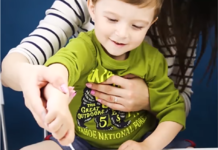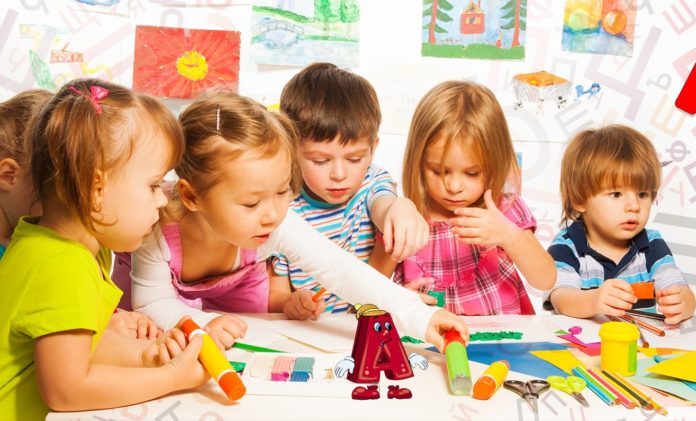
In this difficult but interesting period, when a child turns from a baby into a preschool child, the formation of his personality, attitude to the world around him and his own actions is in full swing. Parenting children of this age is a crucial and difficult moment for parents who want to raise a happy and intelligent person. At this age, the foundation of the personality is laid, on which the character, skills and abilities of the child will develop.
Features of the education of preschool children
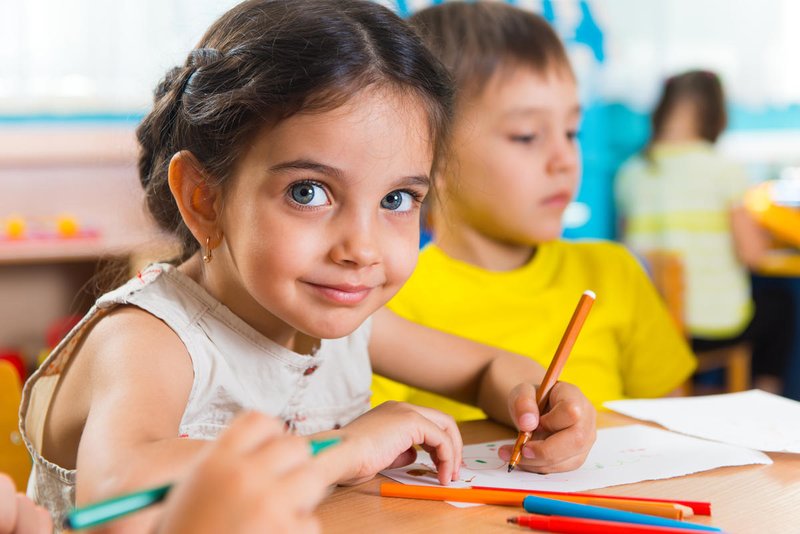
The process of raising a child at this age is carried out in two directions:
- Personal development;
- Preparation for school.
One cannot but agree that upbringing should include approaches from both points of view. It is important how to teach the child good things and develop strengths of character, and prepare him for school life, instilling responsibility and social skills.
Psychological features
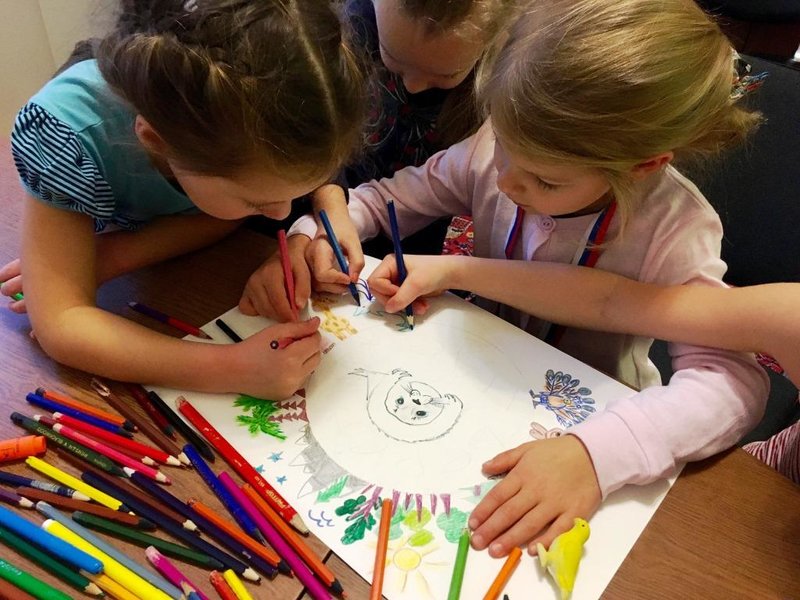
In parenting, parents usually apply three basic psychological models. Most often they are used separately from each other, however, each model has its pros and cons.
Authoritarian model it can be clearly seen when the parent seeks to achieve a result convenient for him from the child, putting his opinion above the opinion of the child. Disobedience or failure of the child is punished, and right actions are approved. The advantages of this model include:
- A clear understanding of the child's instructions from the parent;
- A full understanding of responsibility for their actions and the consequences of improper task performance.
There are much more minuses, and their consequences are very tangible:
- Accustomed to the authoritarianism of the parent, the child accepts his opinion on faith and ceases to think with his own head;
- The action of the authoritarian model gives rise to fear of the child in relation to parents;
- The child becomes non-initiative and imitates the behavior patterns of parents.
Inductive method - in the process of education, communication takes place with the child, during which the solution to the problem is with him. The child learns to make decisions and draw conclusions, and also assumes part of the responsibility. The advantages of the inductive method include:
- Early development of responsibility;
- The child quickly begins to learn to think and think for himself;
- The child takes the initiative;
- It turns out to be more prepared for life.
There are several disadvantages to induction:
- A complex and subtle approach to use - not always the parent can understand when responsibility can be passed on to the child;
- At the fragile age of 4-6 years, the words “decide for yourself” or “everything is in your hands” may not be entirely appropriate;
- If you put too much responsibility on the child, he can feel his loneliness and lose faith in himself.
Model of criticism or hatred - This is a common model that is used by many adults, most of them unconsciously. In this case, everyone has their own moral, but the model is the same: in case of poor behavior, the child is punished with silence or resentment of the parents and forgiveness does not occur until the child realizes the mistake and asks for forgiveness. It is difficult to attribute anything to the advantages of such a technique, but they are:
- The development of a very painful, but clear sense of responsibility for one’s actions;
- The child weighs his every action and asks himself if they will scold for him;
- At a subconscious level, a framework is set in the behavior for which the child should not go.
There are several disadvantages, but they are quite disastrous:
- A child can get a psychological trauma on the basis of a constant feeling of fear, anxiety and doubt, guilt can haunt him almost every second;
- It becomes much harder for a child to trust parents and fear of them leads to isolation.
Any of these models in their pure form can harm the children's psyche. However, with a harmonious combination of pros and cons, you can find the perfect balance.
Basic Rules

If we consider the actively promoted principles of teacher education in modern conditions, it turns out that the methods relevant in the days of the USSR are outdated. The method of instilling feelings of guilt and shame, belittling children's authority, coercion and prohibitions have not only lost their popularity, but are also considered negative. Nowadays, psychologists recommend that the educational process be based on mutual respect and trust between children and adults.
Teachers recommend that all parents use simple rules when communicating with children:
- Respect the personality of the child, prevent any kind of violence against her and do not humiliate him;
- To control, but give freedom of choice;
- From an early age, provide children with the necessary conditions so that the process of assimilation of skills and knowledge takes place qualitatively;
- Helping the child make choices or conclusions, explain to him all the pros and cons;
- Establish rules and requirements, taking care of the positive attitude of the child to them;
- As much as possible and more often communicate with the child in order to develop mutual understanding and development of subconscious skills, the formation of speech and social culture;
- To develop responsibility and confidence in children, supporting any undertakings and manifestations of the initiative;
- Choosing a model of education, to organize the unity of the pedagogical process, requiring the support of other close adults;
- Take into account the age, abilities, character and temperament of a preschooler;
- Avoid bans and false promises;
- Gradually, with the growth of the child, give him more independence;
- Work on yourself in order to be the best example for a child.
At first glance, these rules are simple and understandable, but observing each of them is extremely important for a preschooler to grow up to be developed and capable.
Areas of development of a preschool child
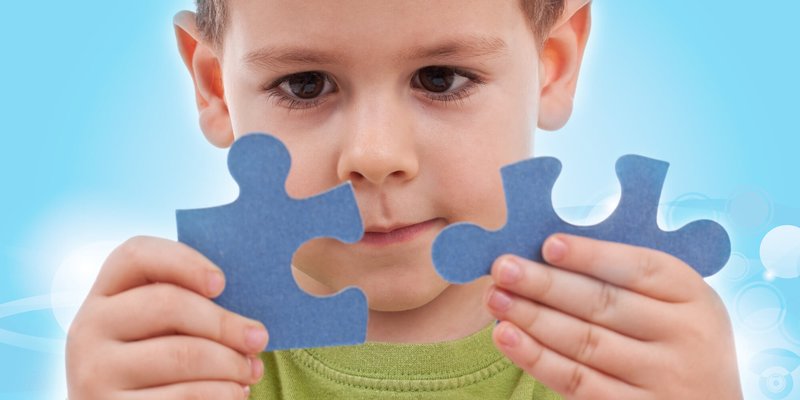
A four to six year period is the time of the first age crisis in human life. At this age, children begin to rethink their usual lives and actively take an example from parents and adults. And the main task of the parent at this time is the formation of a child's sense of responsibility for the actions he performs. In addition, it is necessary to develop a child according to principles such as:
- Physical education;
- Intellectual;
- Moral;
- Social;
- Labor.
For the correct formation of a healthy personality, education must be carried out according to all principles at once.
Physical education

It’s not for nothing that the saying “In a healthy body is a healthy mind” is so popular among teachers. Numerous studies have shown that healthy, physically active, and having a good vitality, children absorb information faster and better. Therefore, physical development is the first area in which it is necessary to raise a child.Educators recommend:
- Provide the child with a strict daily routine and teach them to adhere to it on their own;
- Start the day with exercise and exercise;
- Daily walk with a child in the fresh air, without going past playgrounds and fitness equipment;
- Provide it with accessories for outdoor activities: bicycle, scooter, balls, comfortable running shoes;
- When a child reaches the right age, choose a sports section that will not only provide further physical education, but will also appeal to the child.
If initially the task of parents is to ensure physical development, then by the age of seven the child should take care of it for the most part independently. In addition, it is imperative that the child understands the importance of physical development.
Intellectual

The most important component of psychological education is intellectual development. This is a set of pedagogical actions, the purpose of which is to develop the mind of a growing baby by transferring to him the experience, knowledge, skills, abilities, as well as the norms of behavior inherent in the generation, rules and ratings.
Depending on the age of the child, intellectual development is divided into stages:
- 1-3 years;
- 4-6 years old;
- 6-7 years old.
At the beginning of the first or second year of life, the intelligence of the baby develops on the principle of visual-effective thinking. He explores the new world in a tactile, gustatory and olfactory way. The goal of parents at this age is to introduce the baby to new items and how to use them.
By the age of four or six, thinking changes to a visual-figurative one. Being still unfamiliar with any concepts, children create visual images about them. During this period, the most important condition for upbringing and development is a good atmosphere in the family, where parents love and are ready to answer all questions and needs.
After six years, the child’s thinking becomes more playful. During this period, for the purpose of intellectual education, it is possible to organize training in the form of games that promote concentration, imagination and creation: feeding dolls, modeling from plasticine, drawing, board games. In addition to such games, logical ones must be present, the purpose of which is the formation of mathematical functions of the brain: puzzles. mosaic, designers.
Moral

Moral education consists in explaining the norms and rules of behavior. Understanding of these norms is individual for each parent, we can only recommend the ways in which morality is instilled at different ages:
- Up to 1 year, children do not understand what is “good” and what is “bad”, and parents can show them the correct model of behavior only by their own example. Showing affection and love, parents cultivate confidence and positive thinking in the baby.
- Up to 2 years, the main tactic of parents should be to prevent situations in which the child may act “badly” instead of scolding him for it. For example, to close the closet instead of scolding the baby because he crawls into it, do not go to the store before eating, so that he does not eat sweets and does not ask him to buy. Avoid complex disciplinary action and think ahead.
- Between 2 and 4 years old children do not understand abstract things: truth, generosity, support. Give the children real examples, simple metaphors and firmly suppress bad deeds, doing it calmly and benevolently.
- Between 4 and 5 years comes the most favorable time to strengthen moral standards. Children already perfectly understand abstract concepts and easily absorb various examples, especially those that are nearby. At this age, kids want to be like their loved ones and cause them joy, so well-deserved praise and encouragement motivate them the best way possible.
- After 6 years, social responsibility begins to develop.At this age, the child needs to explain that other people have rights that must be respected, as well as set the framework and rules of behavior in society.
Further work on moral education is carried out after 7 years and here parents are helped, and in certain cases, unfortunately, the school, friends and other people interfere.
Social

The process of social education of preschool children includes the transfer to them of a system of values, norms of behavior and generally accepted knowledge about society, and depends on the culture, nation and characteristics of the place of residence. Moral norms, value orientations and the standard of behavior for a child are determined primarily by his family, thereby forming a personality.
The nature of the communication of preschool children is non-cognitive: the children are interested in a lot of different questions, and speech becomes their main means of communication. The desire of children of this age is to gain knowledge about the world that surrounds them, asking adults questions and observing their behavior. At the same time, a personal way of cognition is formed - the personal one. The child needs to compare himself and other people with each other, therefore, a critical moment of social education at this age is communication with peers and adults.
It is most convenient to carry out social education in the framework of games: the nature of the child’s actions can say a lot about his temperament and methods of influencing others. By monitoring him during the games, you can identify the pros and cons of the baby's social skills.
Labor

Labor education is another important factor in the development of psychological responsibility. At preschool age, responsibility, skills and the desire for work are formed, therefore it is extremely important to accustom the child to work, starting from 4-5 years. Activities of parents should include activities such as:
- Assistance in determining labor goals;
- Discussion of the labor process;
- Discussion of the morality of work and its purpose: why and for whom it is done, what will it give;
- Teaching a child how to plan step-by-step activities: how to correctly perform a task in stages;
- Awakening interest in work and its nourishment;
- The discussion of the results;
- Encouragement of diligence, interest and desire of the child to work;
- Checking and evaluating the progress of work and its results together with the baby;
- Attracting a preschooler to a joint labor process;
- Giving the right responsible example;
- Help with advice or deed;
- Awakening the child’s initiative to make decisions and begin to work.
Labor develops in a four-six-year-old child quick-wittedness, attentiveness, memory, concentration and observation, and also positively affects health.
Author's methods of education

Nowadays, many new materials and methods for raising children have appeared. Psychologists from all over the world confidently recommend that parents of preschool children take a closer look at such techniques as:
- The Nikitins method is the education of healthy and smart children. Classics teachers Boris and Elena Nikitina recommend that children start learning by observing them, as well as preparing the environment for their proper development. This includes: tables, alphabet, cards hung in the right places, simulators, sports equipment, cubes, puzzles and other elements of the training system;
- The Montessori method is comprehensive education, the main idea of which is the thesis that children should first be taught writing, and then counting and reading. The Montessori method is aimed at cognitive, labor, moral and social development;
- The method of "lazy mom." The method of the Russian psychologist Anna Bykova, which appeared relatively recently, but has already gained immense popularity, is to raise independent children, from childhood developing skills in cognition, understanding, and finding solutions. The method is extremely simple and effective, consists in explaining and setting an example by parents;
- Doman's method. This technique was created by an American pediatrician and is designed to form mental abilities from an early age to seven years. It is based on the belief that children can infinitely absorb information from images and words. Famous Doman’s cards help with this, as well as exercises for the early development of speech, reading speed, curiosity and vocabulary.
There are a huge number of similar techniques, but each parent has his own character and style of behavior, so rarely anyone becomes an adherent of only one technique. The principle “from everywhere” is considered to be a much more frequent and most optimal option - when the best and most important are taken from each system.
Problems of education of preschool children

It is natural that all parents face problems in raising children. Children may not succumb to one or another type of upbringing, disobey their parents and act their own way, sometimes you want to give up. However, in the vast majority of cases, such problems arise due to common mistakes made by parents. For instance:
- Hyperopeca. Excessive care, the environment of the child with hypertrophic attention, and the anxiety of parents about each slip leads to the development of symbiosis or "interpenetration." In this case, the relationship between the parent and the baby becomes too close and destroy the personal qualities and character of the latter. This signals the insecurity of the parents both in themselves and in the child, about the centralization of his personality, as the meaning of his own life.
- Totalitarian authority. Often parents put pressure on their child with multiple demands, a ruthless attitude and uncompromising conditions. For them, the success of the child and the opinion of society about him are more important, while the feelings and desires of the baby play a much smaller role. Uncertain personalities, anxious and suspicious, can grow out of such children.
- Rejection. Various situations happen in life: divorce, difficult birth, violence. Not every parent can cope with problems and not associate the child with bad memories. Rejection is emotional in nature and has grave consequences - a child who is put up just because he has nowhere else to go, suffers from an educational plan, receives constant punishment and ill-treatment.
- Indulgence. Hyperprotection is the scourge of modern families, where the interests of all participants depend on the desire of the child. In such a situation, the ability to assess the situation soundly and to relate adequately to both successes and failures is lost. The reason for excessive indulgence is not always a strong love for the baby, but also the unmet needs of the parents themselves.
If there is at least one of the problems described above, it is worth switching from the thought “Why does the child fail to be brought up?” To the thought “Why can't I raise him?” The problem must be solved as quickly as possible and look for the causes of its appearance in myself . And in this case, do not refuse the help of a specialist psychologist, since the reason can lie very deeply.






